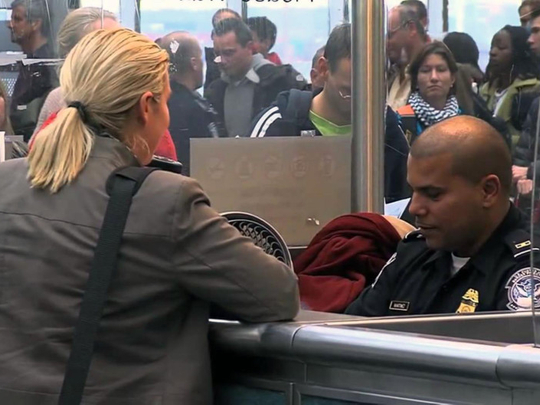
Immigration has become one of the most polarising issues of our day. But it is worth remembering that this century opened with a tale of family and migration that was as contentious as many of the stories that punctuate our current debate: The case of Elian Gonzalez.
In November 1999, when Elian was six, he left Cuba in a small boat with his mother, who was seeking a better life in Florida. She and 10 others died when the boat sank in a storm. Elian survived by clinging to an inner tube. Courts eventually ruled that he must return to his father in Cuba rather than stay with relatives in Florida. He remains there to this day.
Regardless of your views of the underlying legal arguments in the case, the image of a small, frightened boy being pulled from the arms of a sheltering adult by a team of heavily armed federal agents remains seared in the minds of many people as a low point in the immigration debate.
Brace yourself for the possibility of seeing this kind of scene again.
As Republicans, whose party has consistently and rightly advanced policies to support the essential role of families in America, we are deeply troubled by the harm that is about to be done to hundreds of thousands of families that have legally called America home for more than two decades.
In the wake of the 2001 earthquake in El Salvador that claimed more than 1,000 lives and destroyed 100,000 homes, the United States allowed hard-hit families to live and work in America. This merciful act was one of many that America took to relieve the suffering of a natural disaster in one of the hemisphere’s most troubled, impoverished nations.
Now, after almost two decades, the nation that showed that kindness is poised to revoke it and force approximately 200,000 Salvadorans to leave the US, even those whose children are American citizens. (Together, they have about 190,000 American-born children.)
It is wrong to potentially break up so many families that have for so long made the US their home — legally and at America’s invitation.
When prioritising the immigration problems America faces, the case of 200,000 Salvadorans who accepted America’s invitation to live and work there legally would not even make a top-10 list. The biggest challenge is, of course, securing the border. It must be done. Continued illegal migration across the southern border and the often-related criminal activity involving drugs, human trafficking and undocumented, unregulated labour is unacceptable.
Second, of course, is what to do with the 10 million to 15 million undocumented immigrants who arrived over the past several decades and who have become part of American life — and who, let’s be honest, will not and should not be forcibly removed. Congress and the president can and must act now to resolve these problems.
As our leaders try to devise durable, humane solutions to the most urgent immigration issues, it is a mistake to think the right approach is to look backward, relitigate nearly 20-year-old decisions and break up families. In fact, the action against Salvadoran families is so problematic that it is hard to see how it will not hinder efforts in Washington to find common ground on immigration.
Another of America’s challenges is how to deal with the 800,000 undocumented immigrants who were brought to the US with their families when they were children. The uncertain status of these “Dreamers” is not of their own making. Though they were not born in America, they know no other home than America. They grew up, studied and work here. They are largely models of the assimilation America seeks for all immigrants. Congress can and should move quickly to send President Donald Trump legislation providing a common-sense resolution to their situation so that they can continue to thrive in America as part of the American dream.
One of the American party’s, and the world’s, greatest leaders, Ronald Reagan, was also a passionate and articulate advocate of strong families. He once said: “The family has always been the cornerstone of American society. Our families nurture, preserve and pass on to each succeeding generation the values we share and cherish, values that are the foundation for our freedoms.”
Singling out Salvadoran families for separation is simply a bad idea that should be dropped. If we believe America is made stronger by families, then let’s do everything we can to strengthen all the families who choose to call America home. At the very least, the federal government should not become the instrument for attacking them.
We must instead take up the actual immigration challenges we face in a humane, responsible way that protects American interests and jobs.
— New York Times News Service
John Kasich, a Republican, is the Governor of Ohio. Jeb Bush Jr. is a board member of the National Immigration Forum, an advocacy group.












